"Responsible Supply Chain: Recommendation and Strategies for Global Labor Rights and Due Diligence" Workshop - Northern Session(2025/03/29)
2025/03/29
"Responsible Supply Chain: Recommendation and Strategies for Global Labor Rights and Due Diligence" Workshop (Northern Session) (2025/03/29)
On March 29, 2025, the Center for Strategy and Human Capital Research at National Sun Yat-sen University hosted the workshop titled “Responsible Supply Chain: Recommendation and Strategies for Global Labor Rights and Due Diligence.” The event explored how businesses can balance operations with labor rights to ensure sustainable supply chain development. In his opening remarks, Vice President and Center Director Professor Shyh-Jer Chen emphasized that responsible supply chains and labor rights protection have become critical international trends. The workshop attracted active participation from experts across industry, government, and academia, reflecting widespread attention to the topic. The Center plans to continue fostering academic-industry collaboration to promote better solutions for labor rights and corporate responsibility.
Global Labor Relations and Supply Chain Challenges
The workshop opened with Professor Shih-Wei Pan from the Department of Labor and Human Resources at Chinese Culture University, who offered a comprehensive analysis of global labor relations and working conditions in supply chains. As Taiwan’s first Minister of Labor, Professor Pan discussed how globalization and de-globalization affect Taiwan's labor market and emphasized Taiwan’s core position in global supply chains.
He highlighted major labor challenges arising from supply chain development, such as low wages, excessive working hours, atypical employment, and forced labor. Citing the case of Savar building collapse, he pointed out the shortcomings of global brands in labor supervision and asserted that traditional Corporate Social Responsibility (CSR) is no longer adequate. Instead, companies should adopt Human Rights Due Diligence (HRDD) to integrate human rights into decision-making and monitor the entire supply chain.
In conclusion, Professor Pan urged Taiwanese enterprises to enhance their strategic thinking, incorporate human rights considerations into business decisions, and strengthen their capacity to respond to transformations in the global supply chain. He also underscored the importance of building trust with workers and social stakeholders, reminding businesses to place greater emphasis on transnational labor relations and social responsibility.
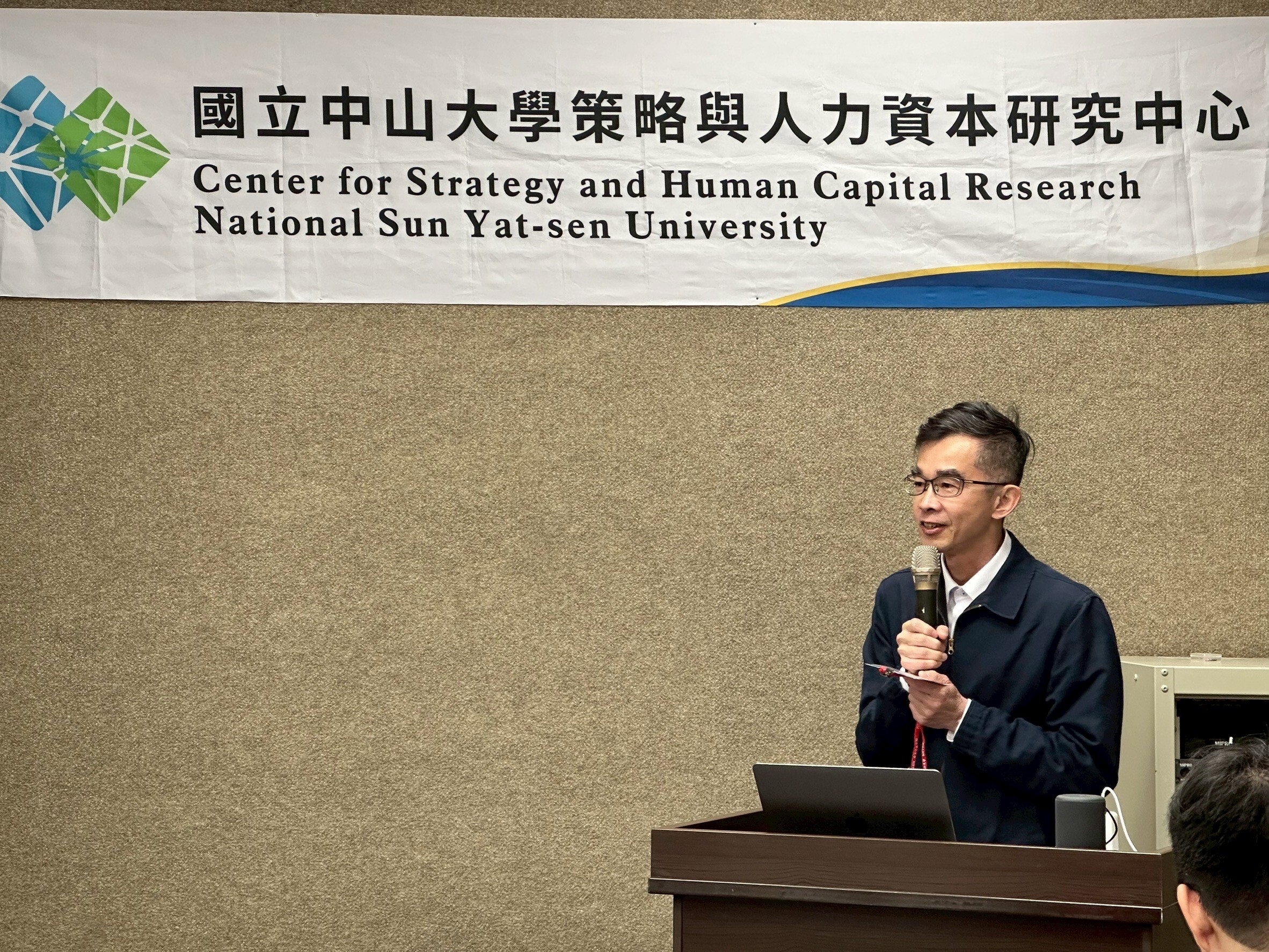
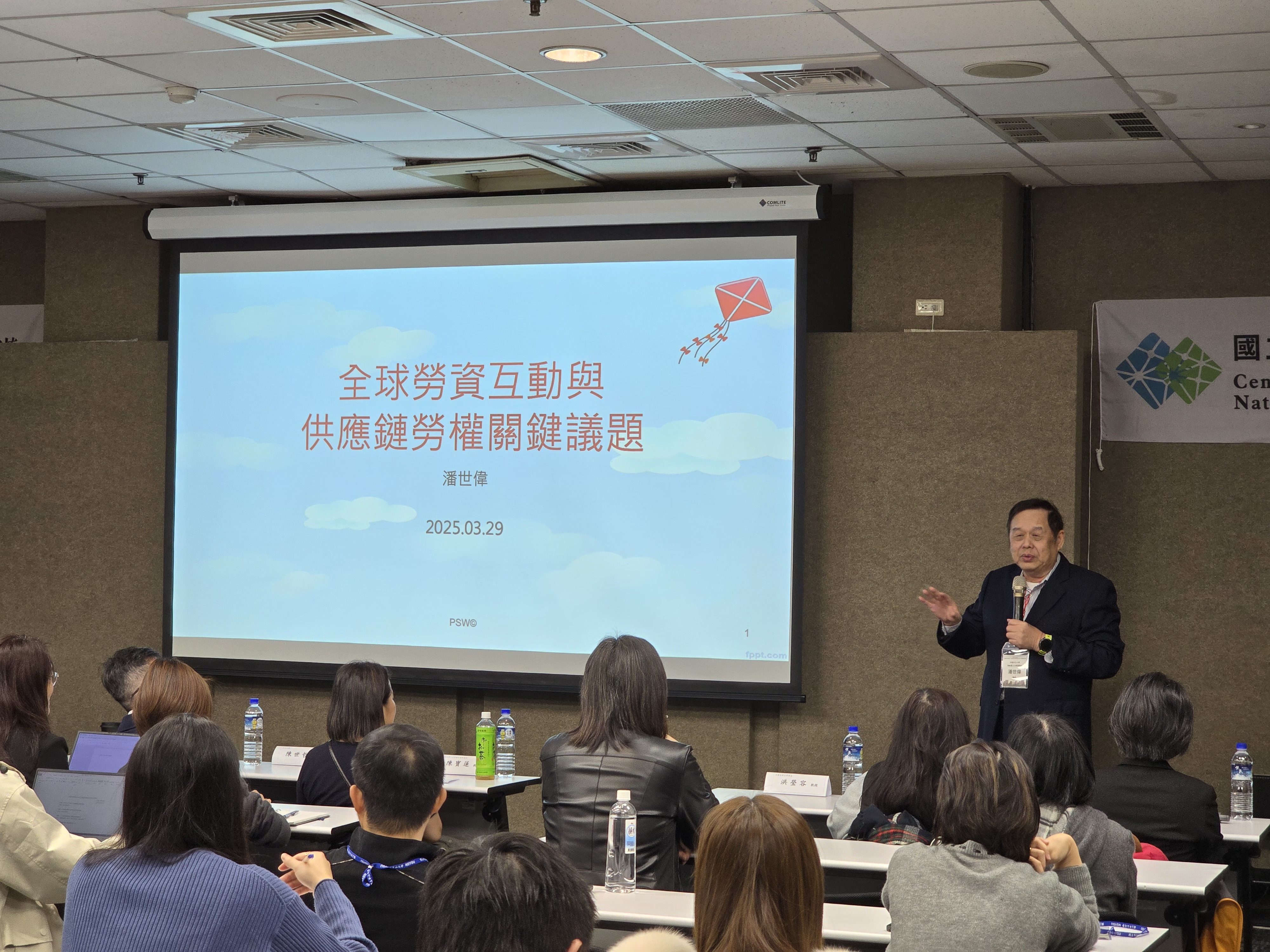
Labor Rights and Legal Developments in Supply Chains
Professor Ying-Jung Hung of National Chung Hsing University provided a legal perspective on global trends in labor rights regulations and how businesses should respond. Although EU laws are territorial in nature, the influence of HRDD has extended beyond Europe, affecting Taiwanese enterprises as well.
Professor Hung used BASF and Volkswagen as examples of companies that faced significant risks due to supply chain links to human rights issues in Xinjiang. Even with internal audits indicating no violations, these companies eventually exited the region under external pressure. She emphasized that regional human rights issues can impact the entire supply chain, and companies must strengthen their due diligence efforts to mitigate legal and reputational risks.
She noted that Germany has moved from soft law instruments—like the UN Global Compact and SDGs—toward binding regulations that fill transnational legal gaps. However, implementation challenges persist. For instance, if suppliers lose orders due to non-compliance, it could result in mass unemployment or force businesses to shift to regions with more relaxed regulations. Moreover, enforcing HRDD across indirect suppliers remains difficult.
Supply Chain Labor Rights and HR Data: Strategic Applications Linking International Standards and Corporate Disclosure
The third session, a panel discussion on “HR Data and Labor Rights Due Diligence in Supply Chains,” began with Professor Hsiao-Hui Tai from Chinese Culture University, who addressed the importance of companies following international guidelines such as ILO conventions, UNGC, and SDGs to fulfill their CSR and ESG obligations, protect labor rights, and strengthen supply chain management. She emphasized that current key disclosure standards, such as SA8000, ISO 26000, GRI, and SASB Standards, can help companies enhance management transparency, assess operational impacts, and meet the requirements of rating mechanisms such as MSCI, DJSI, and FTSE Russell. Professor Tai also highlighted the EU’s new Corporate Sustainability Due Diligence Directive (CSDDD) and its implications for Taiwanese firms targeting the European market.
Following her, Professor Nien-Chi Liu from National Taiwan University pointed out that human rights due diligence (HRDD) should be dynamic and adaptable, responding to different contexts and timing, to avoid over-relying on static compliance checklists. As global corporate sustainability and ESG requirements become more difficult, information disclosure has evolved from traditional CSR reports to a dynamic management process with governance implications. Professor Liu emphasized that HRs should reposition their role in sustainability issues, not only in response to the expansion of disclosure requirements but also by supporting decision-making with data as a risk prevention mechanism, thereby establishing a credible communication foundation. Furthermore, Professor Liu introduced indicators proposed by the Global Labor Institute (GLI) at Cornell University, reminding companies to clarify the meaning and potential impacts behind each indicator when facing diverse evaluation standards and industry differences. This helps avoid formalized processes and enables companies to fully realize the governance benefits of information disclosure.
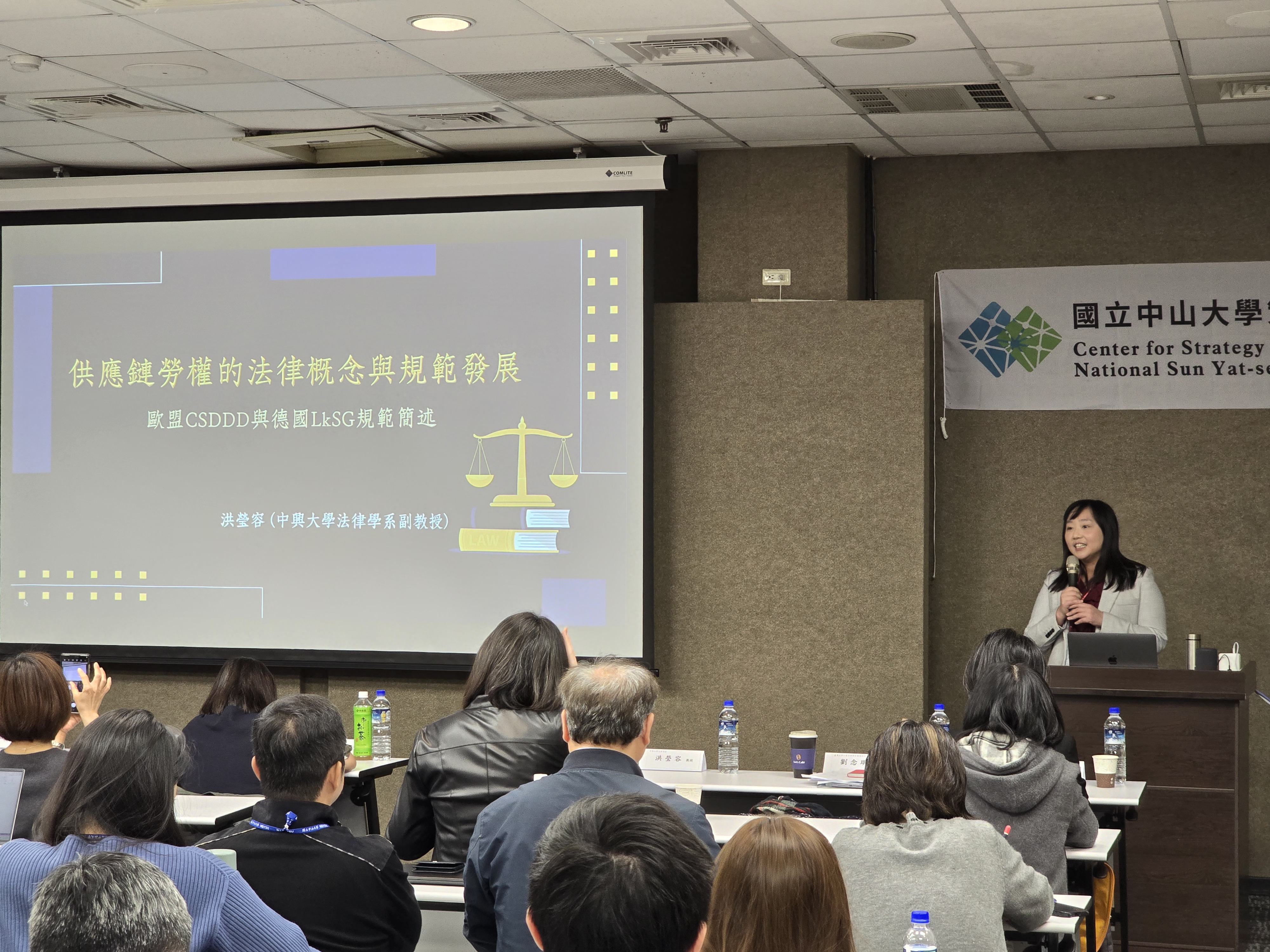
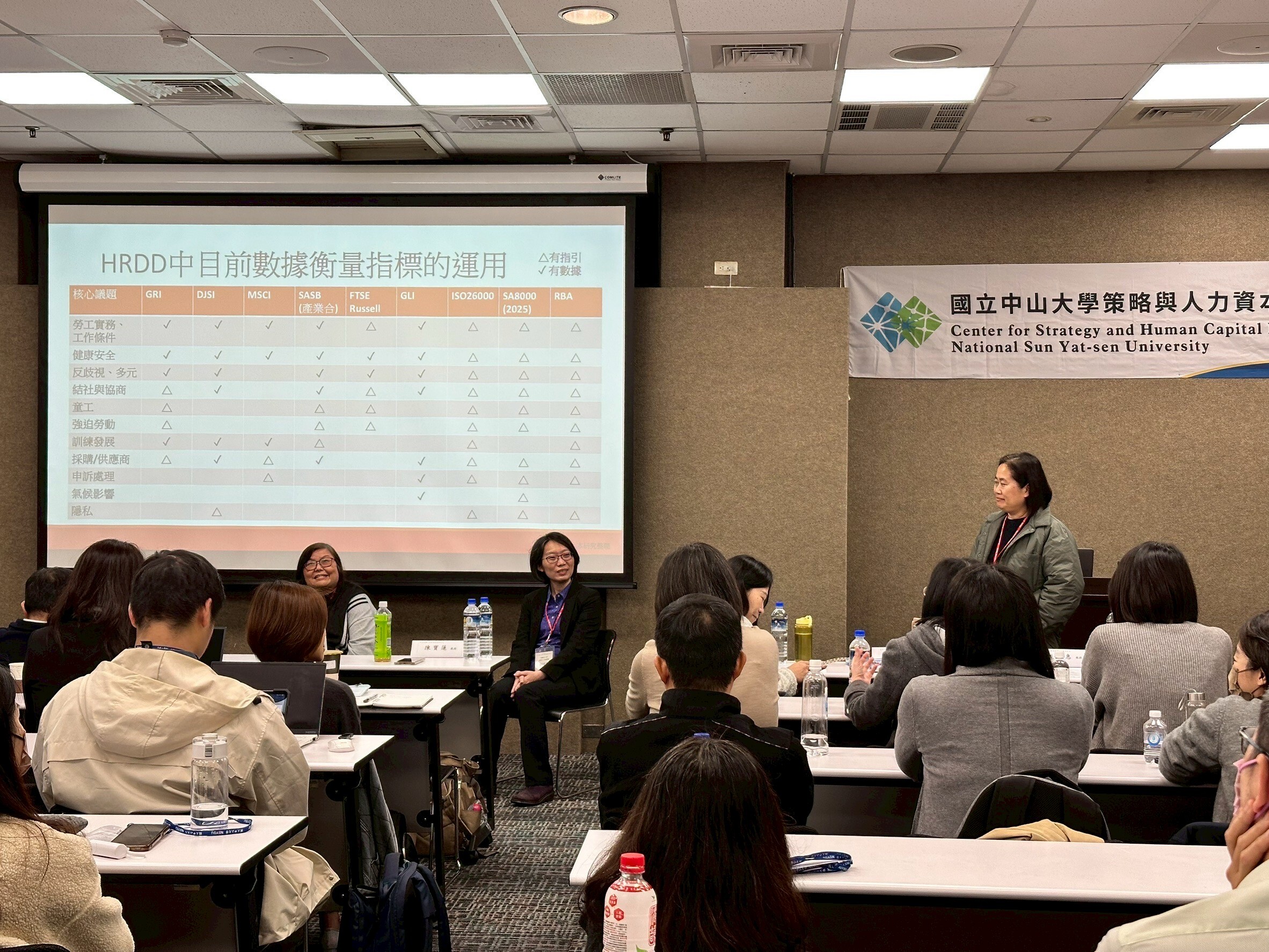
Practical Insights on Facing Labor Rights Challenges in Supply Chains
The final session featured Director Gina Chuang from Deloitte & Touche, Risk Management Advisory, who shared practical strategies on implementing HRDD from a consultancy perspective. She pointed out that corporate operations commonly involve human rights risks.. Effective human rights management should follow three core principles—risk identification, prevention and remedy, and operational integration—and be implemented through processes such as training, risk assessments, audits, and disclosures, engaging both internal stakeholders and all parties across the value chain.
Ms. Chuang emphasized that companies should not only react to risks but also take proactive measures to prevent harm. Using Disney and Walmart as case studies, she illustrated how these corporations implemented supplier codes of conduct, factory audits, and grievance mechanisms to manage labor conditions. She also called for collaborative engagement with suppliers, sharing risk insights and helping build management systems to enhance overall supply chain resilience. Finally, Ms. Chuang urged companies to improve two-way communication and information transparency with stakeholders to achieve sustainable and responsible business practices.
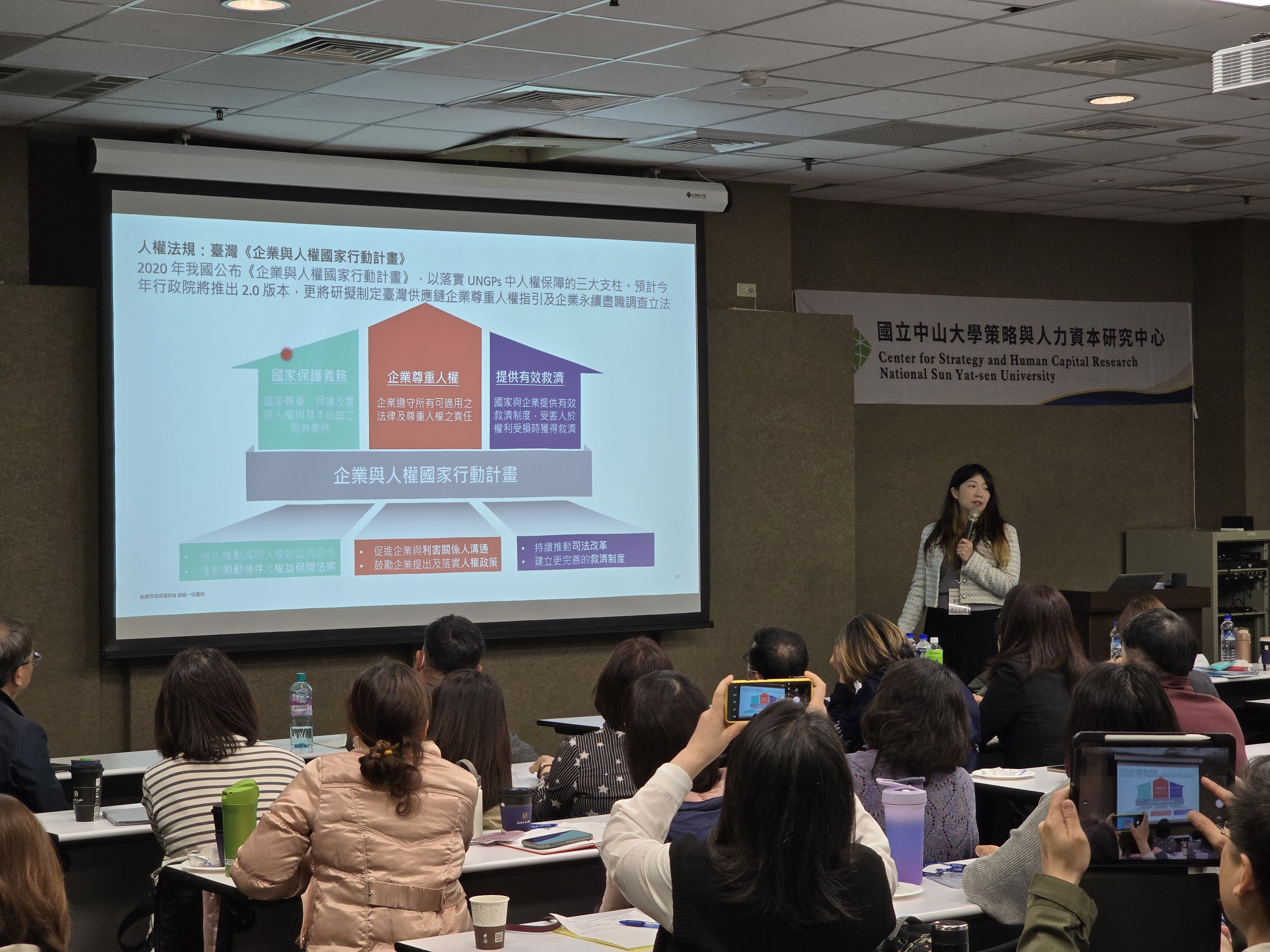
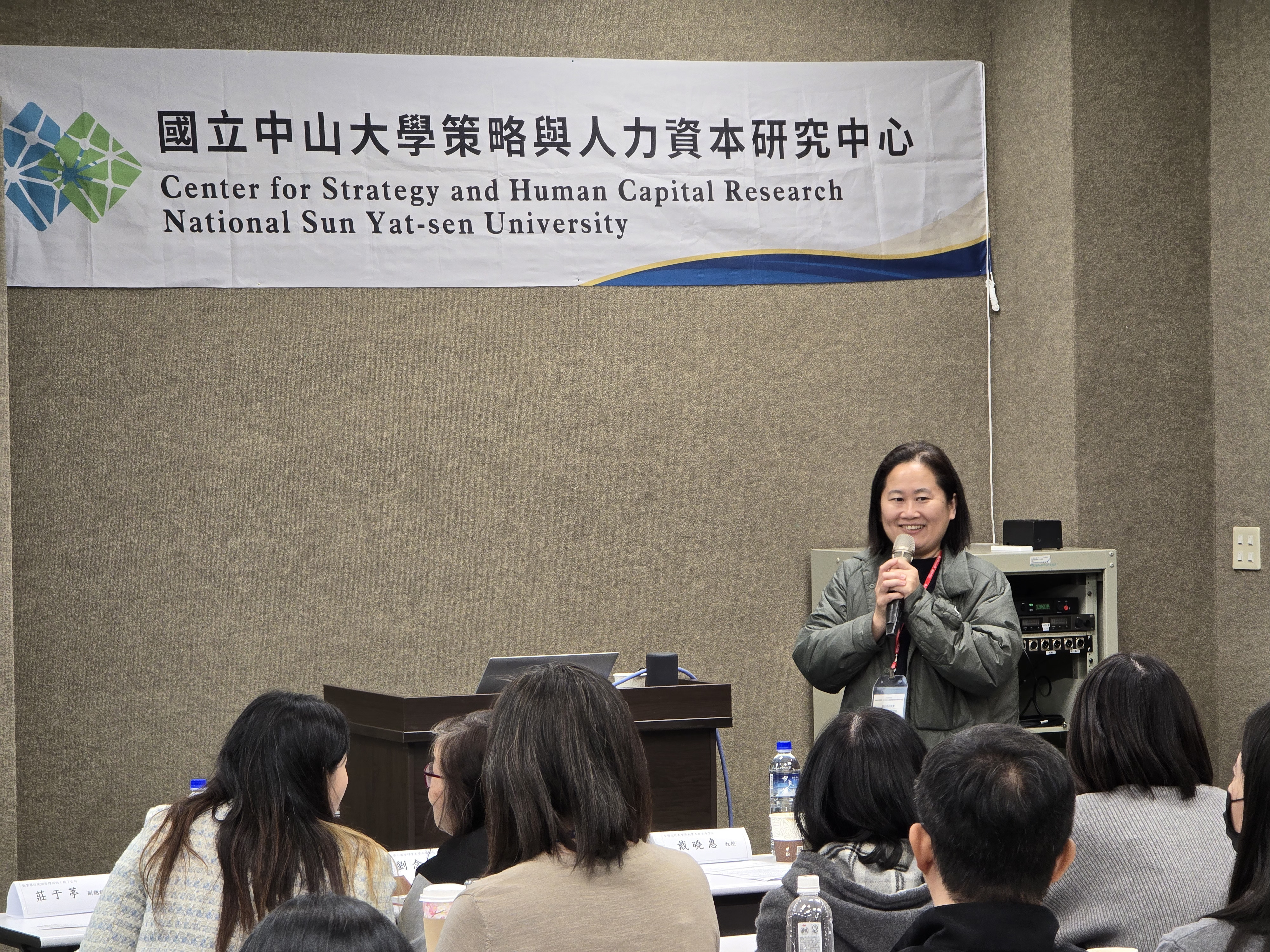
The “Responsible Supply Chain” workshop featured four sessions and five expert speakers, providing a comprehensive exploration of global labor rights challenges and corporate strategies, spanning from policy and legal frameworks to practical implementation. Speakers emphasized that in the face of intensifying global regulations and rising social expectations, Taiwanese companies must establish strong due diligence systems, strengthen cross-functional collaboration, and embed human rights and sustainability into corporate governance. By proactively addressing these issues, businesses can ensure long-term competitiveness while fulfilling their responsibilities for sustainable and ethical development.
Photo Highlights
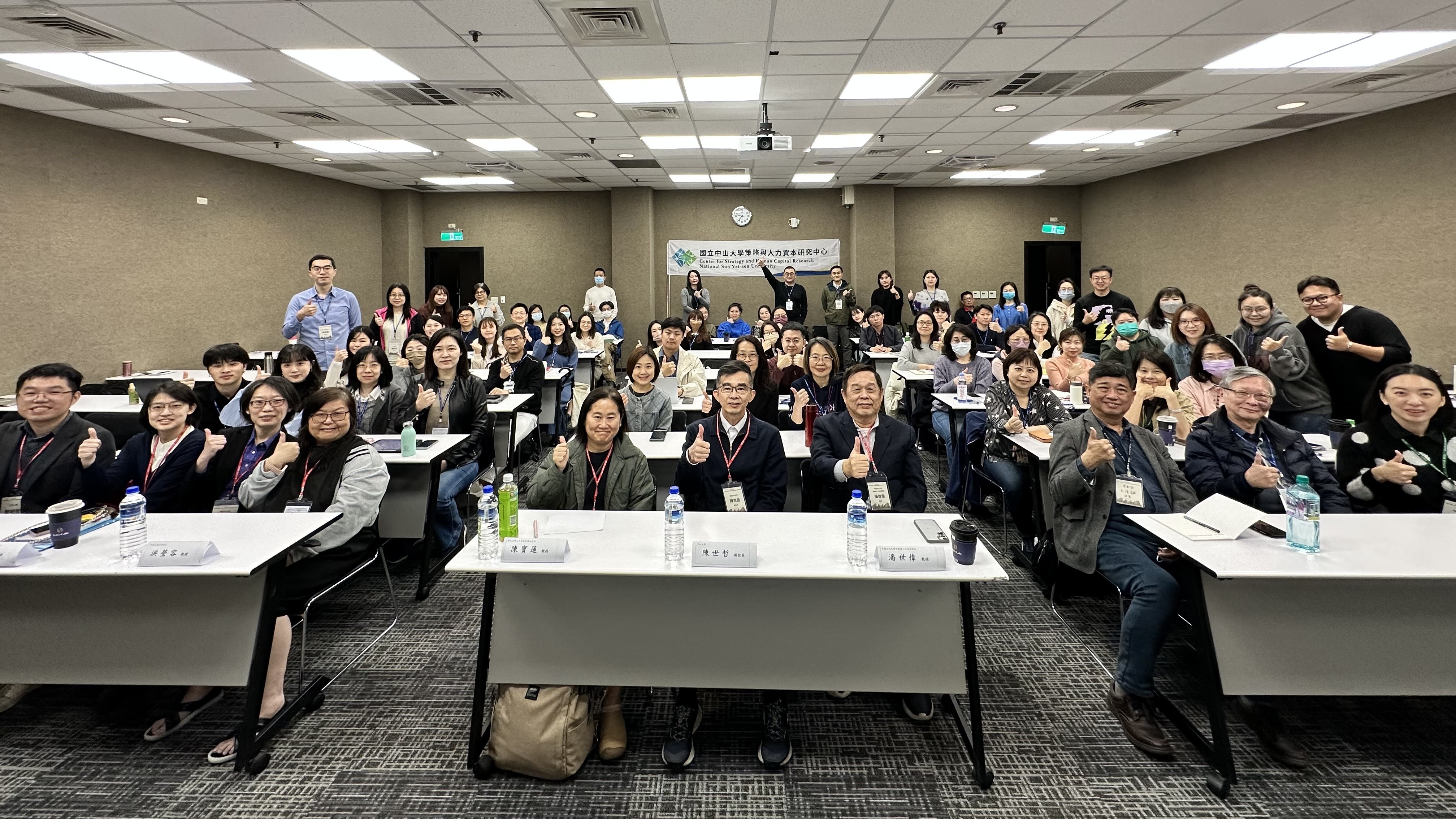
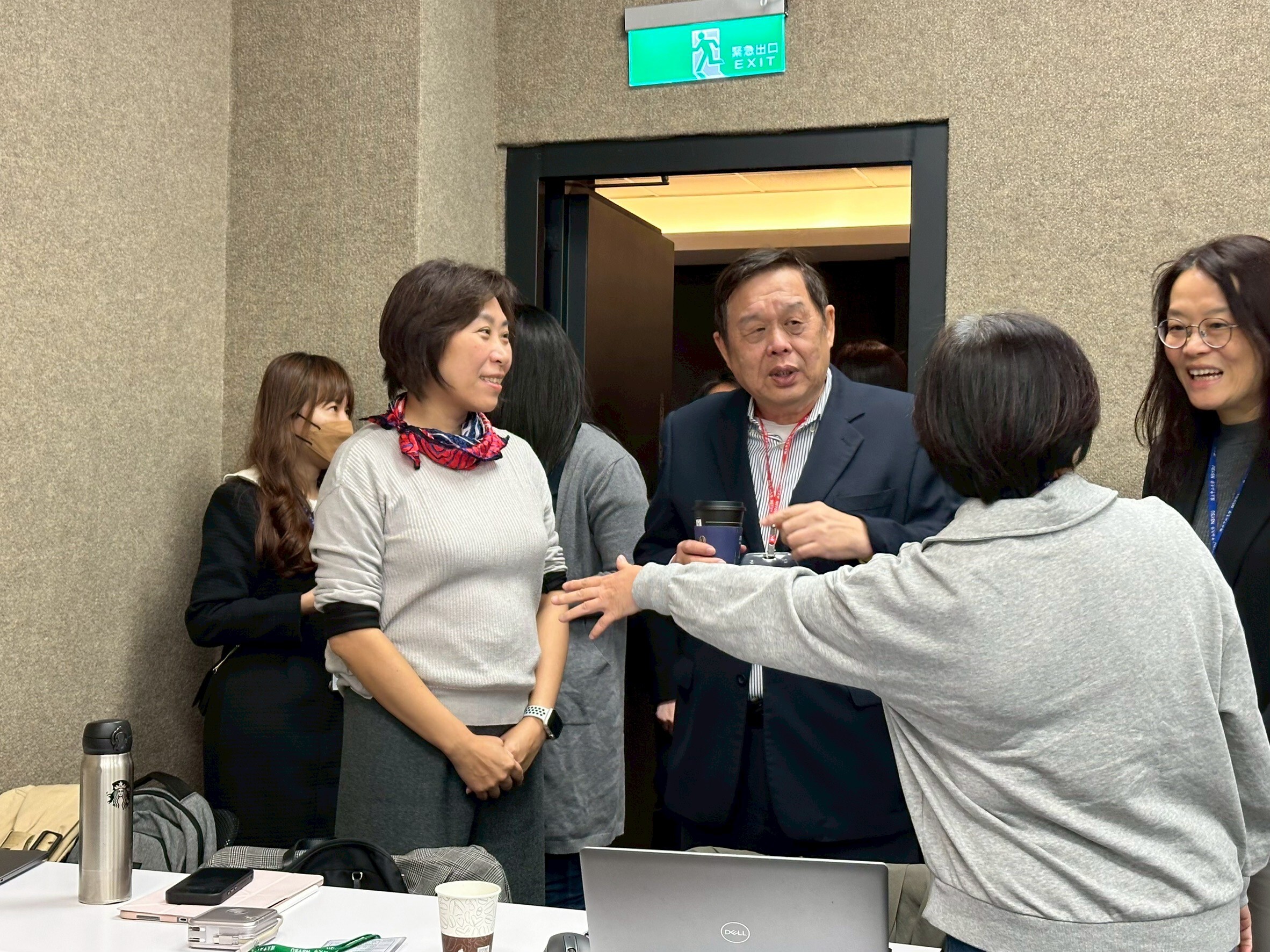
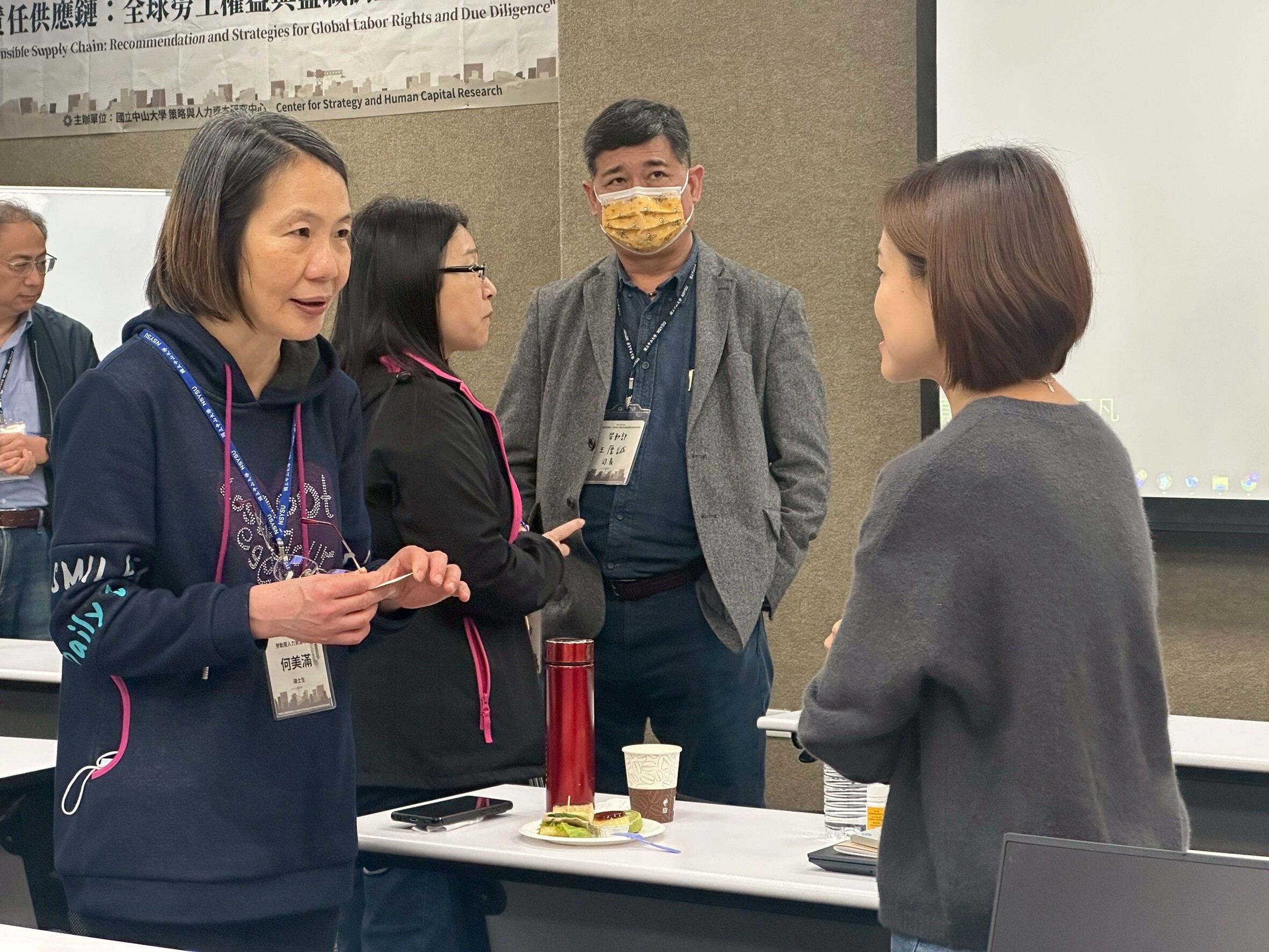
Thank you for your support!

